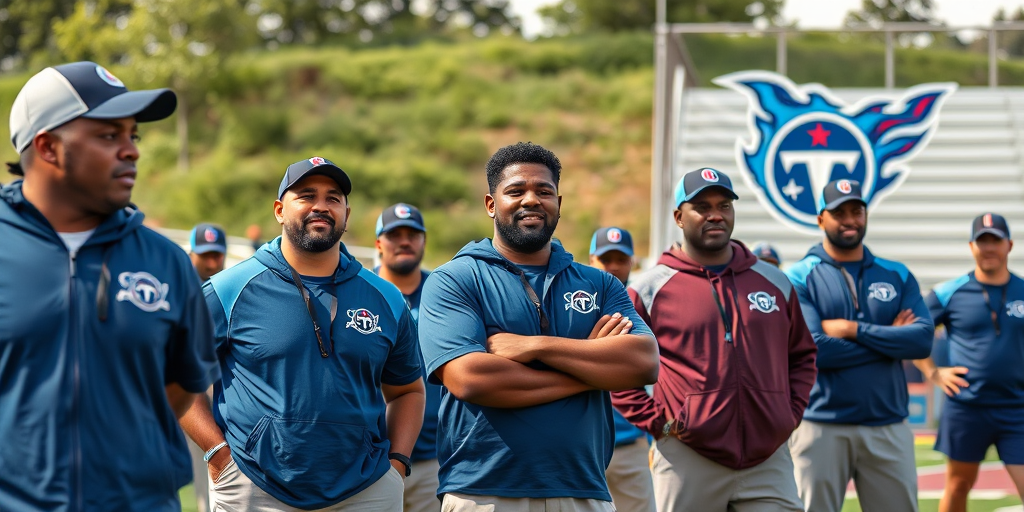Washington Football Strength Coach Selected for Prestigious Bill Walsh Diversity Fellowship
Trei “Cadillac” Mitchell, an assistant football strength and conditioning coach at the University of Washington, has been selected to participate in the highly esteemed Bill Walsh Diversity Coaching Fellowship with the Tennessee Titans this summer. This opportunity marks a significant step in Mitchell’s career and resonates deeply with the ongoing efforts to enhance diversity within the NFL’s coaching ranks, a focus area for both the league and educational institutions like the University of Washington.
Path to the Fellowship
Mitchell’s journey to this prestigious fellowship is a testament to his dedication and rising prominence in the world of college athletics. A former four-year letterman at Alabama State University, a historically black public college, Mitchell played from 2010 to 2015, contributing substantially to his team’s performance. Since then, he has steadily climbed the coaching ladder, earning recognition for his commitment to athlete development and strength training.
The Bill Walsh Diversity Coaching Fellowship, established in 1987 by the Hall of Fame coach Bill Walsh, aims to provide minority coaches with the opportunity to participate in NFL training camps, gaining insights into the inner workings of professional football organizations. This initiative is specifically designed for former players and high school or college coaches, offering them a platform to leverage this experience in their current roles, thereby fostering diversity within the coaching community.
Returning Closer to Home
For Mitchell, a Baton Rouge, Louisiana native, this fellowship also represents a personal milestone as it brings him closer to home, allowing him a brief return to his roots while contributing to his professional growth. Speaking on the significance of this opportunity, Mitchell expressed his gratitude and excitement, noting the value it holds for his career trajectory. “It’s an honor to be part of a program that not only respects but actively works to advance diversity within professional football. I’m eager to bring back invaluable insights to my role at the University of Washington,” he stated.
Natasha Green, a local sports analyst, emphasized the importance of such programs for minority coaches. “Initiatives like the Bill Walsh Diversity Fellowship are crucial for providing coaches from diverse backgrounds the exposure and experience they need to succeed at the highest levels,” she remarked.
Impact on the Community
Within the Seattle community and beyond, Mitchell’s selection underscores the University’s commitment to promoting diversity and inclusion not only within their teams but also across the broader sports community. The University of Washington has been proactive in integrating diverse coaching experiences, as seen through the involvement of Caleb Wilson, last year’s participant of the same fellowship program with the Minnesota Vikings. Head coach Jedd Fisch has championed these initiatives, recognizing the essential role they play in broadening perspectives and enriching team dynamics.
From a local perspective, this development is viewed as a positive reflection on the community’s values and the potential it holds for inspiring current and future athletes and coaches. Seattle residents, particularly those from underrepresented communities, can see themselves in Mitchell’s journey, understanding that their aspirations are supported by institutions that value and promote diversity.
Maxine Thorne, a community leader in Seattle, shared her thoughts, “Witnessing Trei’s journey motivates our youth to strive for their dreams in athletics and beyond. Homegrown talents achieving such heights embody the spirit of perseverance and diversity that Seattle stands for.”
Challenges and Considerations
While the program’s merits are widely recognized, some voices call for cautious optimism. Concerns remain about the speed and extent to which diversity goals are being met at the upper levels of coaching in professional leagues like the NFL. While participation in the Bill Walsh Diversity Fellowship is a step in the right direction, broader structural changes are essential to achieve sustained outcomes in diversity and inclusion within sports leadership.
Dr. Henry Adler, a sociologist specializing in sports culture, notes that while fellowships serve as critical catalysts, their success should be measured by tangible changes in hiring practices and leadership diversity over time. “The true test of these initiatives will be the long-term inclusion of diverse voices in decision-making positions across the league,” he explained.
Future Implications
Looking ahead, the potential impact of Mitchell’s fellowship is substantial, as the insights and experiences he gains can significantly influence his work with the University of Washington athletes. His participation not only marks an individual milestone but also highlights the collective progress being made towards inclusivity at all levels of sports.
For residents and aspiring coaches, local resources and support systems continue to play a critical role. Community workshops, mentorship programs, and engagement with initiatives that promote diversity in sports remain vital for sustaining momentum in these areas.
As Trei Mitchell embarks on this enriching experience, the broader Seattle community and the University of Washington stand to benefit immensely from his success. His journey serves as a beacon of hope and a call to action for fostering diversity across all facets of athletic careers. Through initiatives like the Bill Walsh Diversity Fellowship, the path to inclusive excellence becomes clearer, paving the way for a future where diversity is celebrated and integrated across sporting arenas.
For more information on local sports programs and diversity initiatives, residents can reach out to the University of Washington athletics department and community sports organizations actively involved in promoting these values.







